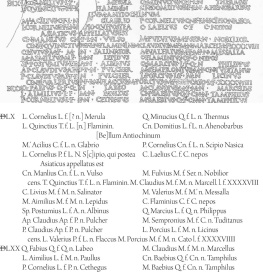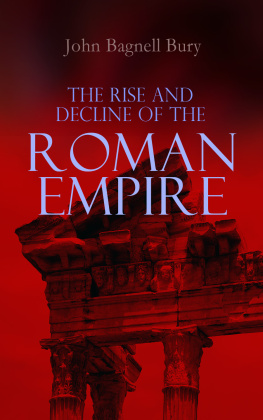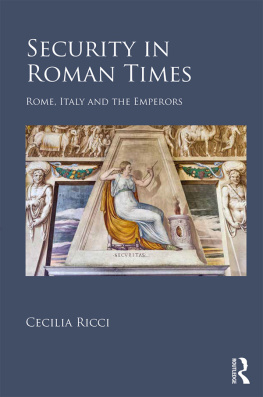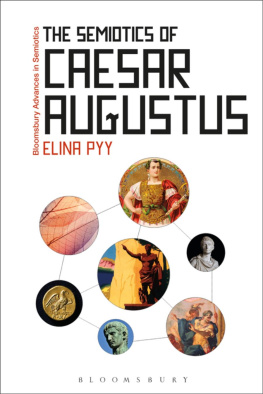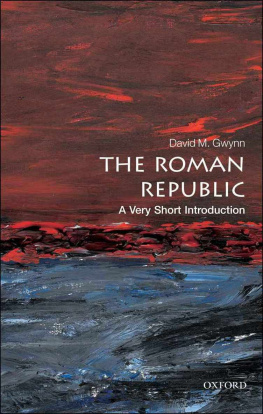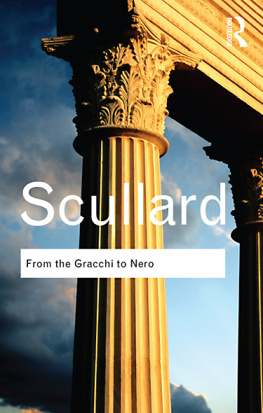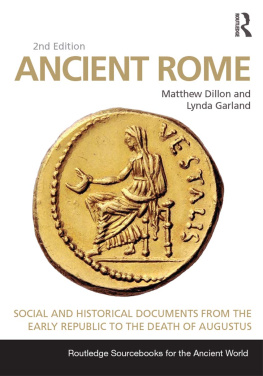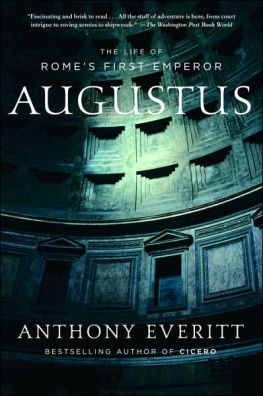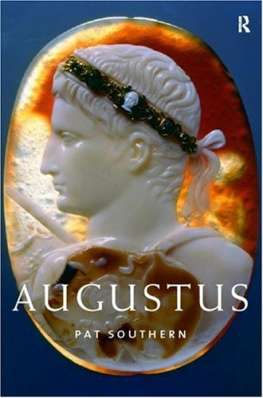CAMBRIDGE CLASSICAL JOURNAL
PROCEEDINGS OF THE CAMBRIDGE PHILOLOGICAL SOCIETY
SUPPLEMENTARY VOLUME 41
Series editor: CHRISTOPHER WHITTON
AUGUSTUS AND THE DESTRUCTION OF HISTORY
The politics of the past in early imperial Rome
edited by
INGO GILDENHARD, ULRICH GOTTER, WOLFGANG HAVENER AND LOUISE HODGSON
Published by The Cambridge Philological Society,
www.classics.cam.ac.uk/philological
The Cambridge Philological Society 2019
ISBN: 9780956838162
ePUB ISBN: 9780956838186
Mobi ISBN: 9780956838186
This book is available direct from Oxbow Books, 10 Hythe Bridge Street, Oxford, OX1 2EW, www.oxbowbooks.com
Print Management by H2 Associates (Cambridge) Limited
Preface and Acknowledgements
We would like to thank the Faculty of Classics at Cambridge and the Exzellenzcluster 16 at the University of Konstanz The Cultural Foundations of Integration for funding the workshop at which the idea for this volume was first mooted. Since then, our contributors have been a model of spirited collegiality: some agreed to write new chapters tailor-made for the issues we explore here; others patiently waited for their own contributions (already tailor-made) to see the light of day until the volume had acquired its present shape. Our book already stands in intertextual dialogue with various other projects, past and present. In many ways, it is a sequel to Formen Rmischer Geschichtsschreibung von den Anfngen bis Livius: Gattungen, Autoren, Kontexte, edited by Ulrich Eigler et al. (Darmstadt 2003); five chapters draw (and build) on doctoral dissertations, four of which have recently appeared in print. See Biesinger (2016), Geisthardt (2015), Havener (2016) and Hodgson (2017). We share several contributors with another edited collection, conceived in a similar spirit and set to appear at about the same time as ours: The Alternative Augustan Age , edited by Kit Morrell, Kathryn Welch and Josiah Osgood (Oxford 2019). We are most grateful to Kathryn and Josiah, who are also represented here, for their companionship, generosity and advice along the way. When we were in search of a publisher, Chris Whitton, with supreme efficiency and kindness, offered us a home in the Supplement Series of the Proceedings of the Cambridge Philological Society; and Kings College, Cambridge, generously agreed to cover a portion of the costs of publication. We have sought all relevant permissions; in particular, we would like to acknowledge the (rare) open content policy of the J. Paul Getty Museum, which has made parts of its collection available under a Creative Commons license and thereby enabled us to use a reproduction of Jean-Lon Grmes painting The Age of Augustus, The Birth of Christ as our cover image. Finally, we have had the great good fortune of having Andrew Dyck as our copy-editor for the press, who worked through the typescript with exemplary care, remedied countless mistakes and improved the argument in a significant number of places; and Andy Harvey as our production-editor, who shepherded our manuscript into print with marvelous skill and efficiency.
The Editors
Contributors
Benjamin Biesinger wrote his doctoral thesis Rmische Dekadenzdiskurse: Untersuchungen zur rmischen Geschichtsschreibung und ihren Kontexten (2. Jahrhundert v. Chr. bis 2. Jahrhundert n. Chr.) at the University of Konstanz (2014).
Johannes Geisthardt wrote his doctoral thesis Zwischen Princeps und Res Publica: Tacitus, Plinius und die senatorische Selbstdarstellung in der Hohen Kaiserzeit at the University of Konstanz (2012).
Ingo Gildenhard is Reader in Classics and the Classical Tradition at the University of Cambridge.
Ulrich Gotter is Professor of Ancient History at the University of Konstanz.
Wolfgang Havener is Research Associate at the University of Heidelberg and wrote his doctoral thesis on Imperator Augustus. Die diskursive Konstituierung der militrischen persona des ersten rmischen princeps at the University of Konstanz (2013).
Louise Hodgson wrote her doctoral thesis Without Body or Form: Res Publica and the Roman Republic at Durham University (2013).
Dunstan Lowe is Senior Lecturer in Latin Literature at the University of Kent.
Josiah Osgood is Professor in the Department of Classics at Georgetown University.
Hannah Price is Programme Coordinator, University of Cambridge Museums, and wrote her doctoral thesis on The Roman Forum: A Conceptual History from Caesar to Mussolini at the University of Cambridge (2015).
Amy Russell is Associate Professor in the Department of Classics and Ancient History at Durham University.
Kathryn Welch is Professor in the Department of Classics and Ancient History at the University of Sydney.
Abbreviations
CIL Corpus inscriptionum Latinarum , Berlin, 1862.
FGrHist F. Jacoby et al. (eds), Die Fragmente der griechischen Historiker , 15 vols, Berlin and Leiden, 1923.
FRHist T. J. Cornell (ed.), The Fragments of the Roman Historians , 3 vols, Oxford, 2013.
ILS H. Dessau (ed.), Inscriptiones Latinae selectae , 3 vols, Berlin, 18921916.
Inscr . It . Inscriptiones Italiae Academiae italicae consociatae ediderunt , Rome, 1931.
LTUR E. M. Steinby (ed.), Lexicon topographicum urbis Romae , 6 vols, Rome, 19932000.
MRR T. R. S. Broughton, Magistrates of the Roman Republic , 3 vols, New York 1951Atlanta, 1986.
OCD S. Hornblower, A. Spawforth and E. Eidinow (eds), The Oxford Classical Dictionary , 4th edn, Oxford, 2012.
OLD P. G. W. Glare (ed.), Oxford Latin Dictionary , Oxford, 1982.
RE G. Wissowa, K. Mittelhaus, K. Ziegler (eds), Paulys Realencyclopdie der classischen Altertumswissenschaft , 83 vols, Stuttgart, 18931980.
RIC C. H. V. Sutherland et al., Roman Imperial Coinage , 10 vols, London, 1923 94.
RRC M. H. Crawford, Roman Republican Coinage , 2 vols, Cambridge, 1974.
SCPP W. Eck, A. Caballos, F. Fernandes (eds), Das senatus consultum de Gn. Pisone patre , Munich, 1996.
T . Siar . Tabula Siarensis .
INTRODUCTION
Attending to the Past: On the Politics of Time in Ancient Rome
Ingo Gildenhard, Ulrich Gotter, Wolfgang Havener, Louise Hodgson
1 Time, History, Memory
Once they choose to reflect on their lives at all, human beings have no alternative but to conceive and imagine them in the dimension of time.
Scholars of antiquity, too, have contributed their share of publications, with studies on ancient conceptions of time and modes of temporality in Near Eastern and classical cultures (and their continuing resonance in the Western cultural tradition). Research across all the sub-disciplines of Ancient Mediterranean Studies has explored how societies or specific groups therein conceived of time, not least to plot and construct their past, in both discourse (historiographical and otherwise) and (material) practice.

